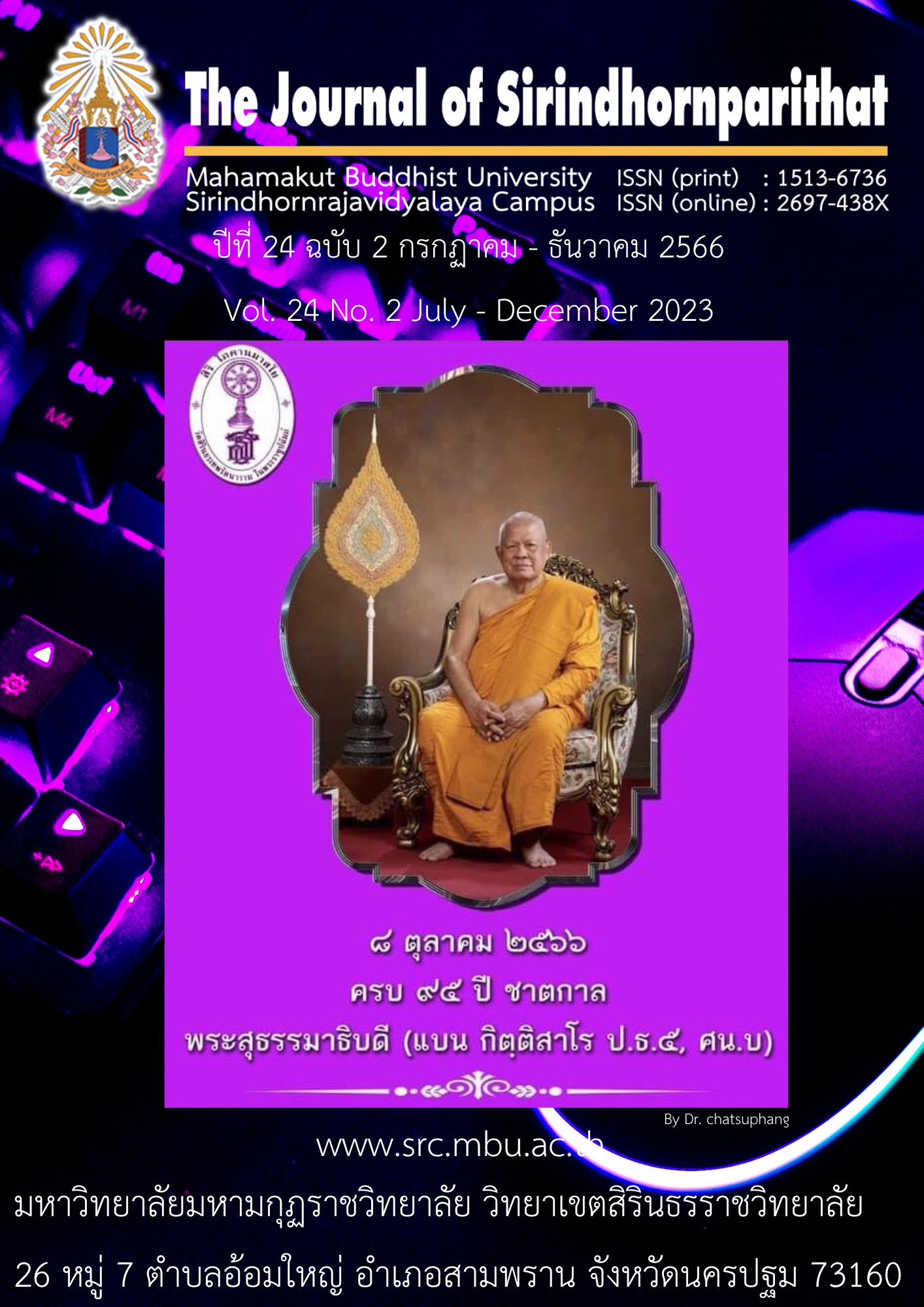The Evaluation of Doctoral of Philosophy Curriculum in Educational Administration Program of Muban Chom Bueng Rajabhat University by CIPPIBEM Model
Keywords:
The Evaluation of Doctoral of Philosophy Curriculum, CIPPIBEM ModelAbstract
The purposes of this research were to study. 1) Evaluation the context of the curriculum 2) Evaluation the input of the curriculum 3) Evaluation the process of the curriculum 4) Evaluation the product of the curriculum 5) Evaluation the impact of the curriculum 6) Evaluation the benefit of the curriculum 7) Evaluation the efficiency of the curriculum 8) Evaluation the modern of the of doctoral of philosophy curriculum in educational administration program by CIPPIBEM model of Faculty of Education in Muban Chom Bueng Rajabhat University. The 27 respondents were teachers, students, graduates, experts and the people involved in this curriculum. And 5 experts verified evaluation results by focus group. The research instrument was a questionnaire. It has validity between 0.80-1.0 and reliability has .784. The statistics used for analysis were percentage, mean, standard deviation.
The research findings were as follows:
- The Evaluation of Doctoral of Philosophy Curriculum in Educational Administration Program of Faculty of Education in Muban Chom Bueng Rajabhat University were overall at a high level. The classification were finding that: There were at a highest level in two aspects and sort from highest to lowest value were product and efficiency and 6 aspects at the high level, respectively were sorted from highest to lowest, Benefit Evaluation, Impact, Context, Process, Modern and Input evaluation.
2. The verification and confirmation research findings by 5 experts. The overall, there were find that correct = 65.80 %, Suitability = 59.60%, Possibility=52.80, Utilization=55%
References
เชษฐภูมิ วรรณไพศาล. (2562). การประเมินหลักสูตรปรัชญาดุษฎีบัณฑิต สาขาวิชาการศึกษาวิชาเอกสังคมศึกษา (หลักสูตรปรับปรุง พ.ศ.2557) คณะศึกษาศาสตร์ มหาวิทยาลัยเชียงใหม่. Journal of Education, Mahasarakham University. 13(2): 139-151.
น้ำมนต์ เรืองฤทธิ์และคณะ. (2564). การประเมินหลักสูตรปรัชญาดุษฎีบัณฑิต สาขาวิชาเทคโนโลยีการศึกษา คณะศึกษาศาสตร์ มหาวิทยาลัยศิลปากร. นครปฐม. มหาวิทยาลัยศิลปากร.
ปิยะธิดา ปัญญา. (2562). การประเมินหลักสูตรปรัชญาดุษฎีบัณฑิต สาขาวิจัยและประเมินผลการศึกษา มหาวิทยาลัยราชภัฏมหาสารคาม. มหาสารคาม: มหาวิทยาลัยราชภัฏมหาสารคาม.
พรทิพย์ ไชยโส. (2565). การประเมินและพัฒนาหลักสูตรศึกษาศาสตรดุษฎีบัณฑิต สาขาวิชาวิจัยและประเมินทางการศึกษา คณะศึกษาศาสตร์ มหาวิทยาลัยเกษตรศาสตร์. วารสารวิทยาลัยดุสิตธานี. 10(2): 21-37.
เพ็ญนภา กุลนภาดล. (2563). การวิจัยประเมินหลักสูตรวิทยาศาสตรมหาบัณฑิต สาขาวิชาจิตวิทยาการปรึกษา คณะศึกษาศาสตร์ มหาวิทยาลัยบูรพา. วารสารมหาวิทยาลัยราชภัฏธนบุรี. 15(1): 76-87.
ภาวิช ทองโรจน์. (2564). บทบาทตามภารกิจอุดมศึกษาของสถาบันอุดมศึกษาเอกชน. วารสารวิทยาลัยดุสิตธานี. 15(2): 13.
วิทยา เจียรพันธุ์. (2563). ความต้องการกำลังคนระดับปริญญาเอกของประเทศไทย ศึกษาศาสตร์ มหาวิทยาลัยสุโขทัยธรรมาธิราช. วารสารนวัตกรรมการบริหารและการจัดการ. 8(3): 1-13.
สมคิด พรมจุ้ย. (2561). การประเมินหลกัสูตรปรัชญาดุษฎีบัณฑิต สาขาวิชาศึกษาศาสตร์ มหาวิทยาลัยสุโขทัยธรรมาธิราช. นนทบุรี: มหาวิทยาลัยสุโขทัยธรรมมาธิราช.
Cronbach, L. J. (1990). Essentials of psychological testing. (5th ed.). New York: Harper Collins Publishers
Jolly Yokiko, W.L. (1991). Modern Inorganic Chemistry. (2 nd ed.). New York: Mc Graw-Hill.
Stufflebeam, D. L. (1971). Educational Evaluation and Decision Making Itasca. Illinois: Peacock.

Downloads
Published
Issue
Section
License
Copyright (c) 2023 Mahamakut Buddhist University

This work is licensed under a Creative Commons Attribution-NonCommercial-NoDerivatives 4.0 International License.
บทความที่ได้รับการตีพิมพ์เป็นลิขสิทธิ์ของ มหาวิทยาลัยมหามกุฏราชวิทยาลัย วิทยาเขตสิรินธรราชวิทยาลัย
ข้อความที่ปรากฏในบทความแต่ละเรื่องในวารสารวิชาการเล่มนี้เป็นความคิดเห็นส่วนตัวของผู้เขียนแต่ละท่านไม่เกี่ยวข้องกับหาวิทยาลัยมหามกุฏราชวิทยาลัย วิทยาเขตสิรินธรราชวิทยาลัย และคณาจารย์ท่านอื่นๆในมหาวิทยาลัยฯ แต่อย่างใด ความรับผิดชอบองค์ประกอบทั้งหมดของบทความแต่ละเรื่องเป็นของผู้เขียนแต่ละท่าน หากมีความผิดพลาดใดๆ ผู้เขียนแต่ละท่านจะรับผิดชอบบทความของตนเองแต่ผู้เดียว



